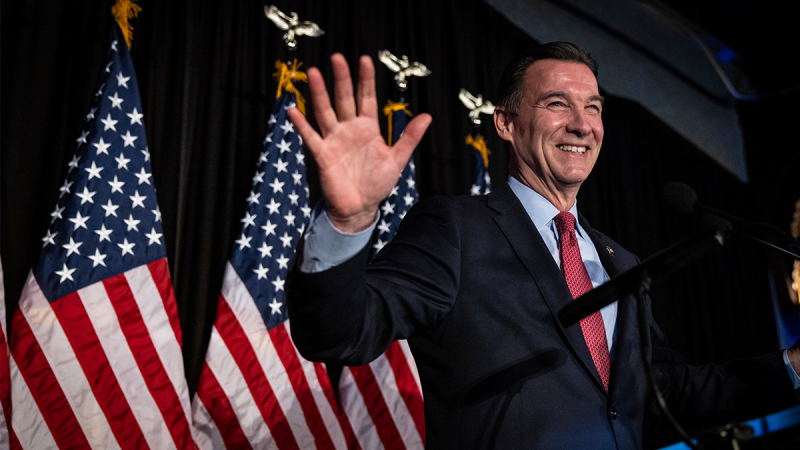
Democrats win seat, Republicans win impeachment, two presidents clash over NATO
If the second attempt to impeach the Homeland Security chief had taken place a short time later, the Republicans would have failed again.
Instead, they managed to impeach Alejandro Mayorkas–the first sitting Cabinet secretary to draw that sanction–by a single vote.
But after a victory in George Santos’ old district, the Democrats would have had the extra vote to stop the impeachment.
Tom Suozzi beat Republican Mazi Pilip in Tuesday’s special election on Long Island, unleashing a tidal wave of punditry about his winning formula–openly tackling such issues as illegal migration and crime rather than avoiding them.
I always caution against drawing sweeping conclusions in one-off local races, and this election in a snowstorm is no exception.
The underlying factor was Santos, the outlandish, lying, fabricating lawmaker who won the seat with a made-up resume, was expelled by the House and is under indictment. Voters felt hosed by the Republican publicity hound, and maybe the Dems were more motivated to vote.
Sure, Suozzi deserves credit for seizing on illegal migration and crime rather than avoiding such explosive issues – and doggedly distancing himself from President Biden. But he also has to run again in the fall.
Trump, for his part, blamed Pilip, ‘running in a race where she didn’t endorse me and tried to ‘straddle the fence,’ when she would have easily WON if she understood anything about MODERN DAY politics in America…I STAYED OUT OF THE RACE, ‘I WANT TO BE LOVED!’’
A subtle Valentine’s Day message?
The move against Mayorkas, the first against a Cabinet officer in 150 years, is about the politics of symbolism. Republicans know full well the Democratic-controlled Senate is not going to convict him. This was about keeping the spotlight on one of the GOP’s best issues.
But if the press saddled Johnson with a humiliating defeat last week, it has to credit him with a big win now.
Both episodes shed light on the fractious politics of the Hill. Just when it looked like the Senate might pass a bipartisan border security bill–which included military aid to Ukraine and Israel–Donald Trump ripped it and the package was dead.
Now the Senate appears ready to pass a stand-alone military aid bill by a filibuster-proof majority. But Johnson says he won’t bring it up for a House floor vote.
That would bury it, unless a handful of Republicans join with Democrats to force a vote through a discharge petition.
Think about it: the United States, unable to help two major allies because of election-year politics, especially Ukraine, which remains under siege by Vladimir Putin.
And that’s why Biden took the rare step of delivering a televised speech on Tuesday.
His predecessor gave him an opening by saying he wouldn’t protect any NATO member who didn’t pay its fair share in military costs. And if that were the case, Putin and Russia could ‘do whatever the hell they want.’
Biden, in his speech, accused Trump of siding with the Russian dictator, calling the comments ‘dumb,’ ‘shameful,’ ‘dangerous’ and ‘un-American.’
Put aside whether Biden is right or Trump is trying to pressure delinquent allies. Joe Biden passed up a softball Super Bowl interview. So why is he getting in front of the cameras now?
One, he’s trying to get push Congress to pass the military aid bill.
Two, he’s trying to change the subject from his own questionable memory in that wake of that stinging special counsel’s report.
Three, he is finally heeding the advice of those who say he needs to do more television to prove his competence and dim the focus on every gaffe or misstatement.
What’s fascinating is the spin of each party when it comes to backing their candidate.
Democrats are hitting the airwaves saying Biden is sharp and laser-focused in private, and counsel Robert Hur has no business airing his personal criticism of the president’s mental acuity.
Republicans are saying Trump would not actually abandon NATO and that he doesn’t mean what he’s saying.
And everyone is getting sustained exposure to a system that generally favors political maneuvering over actual results.



